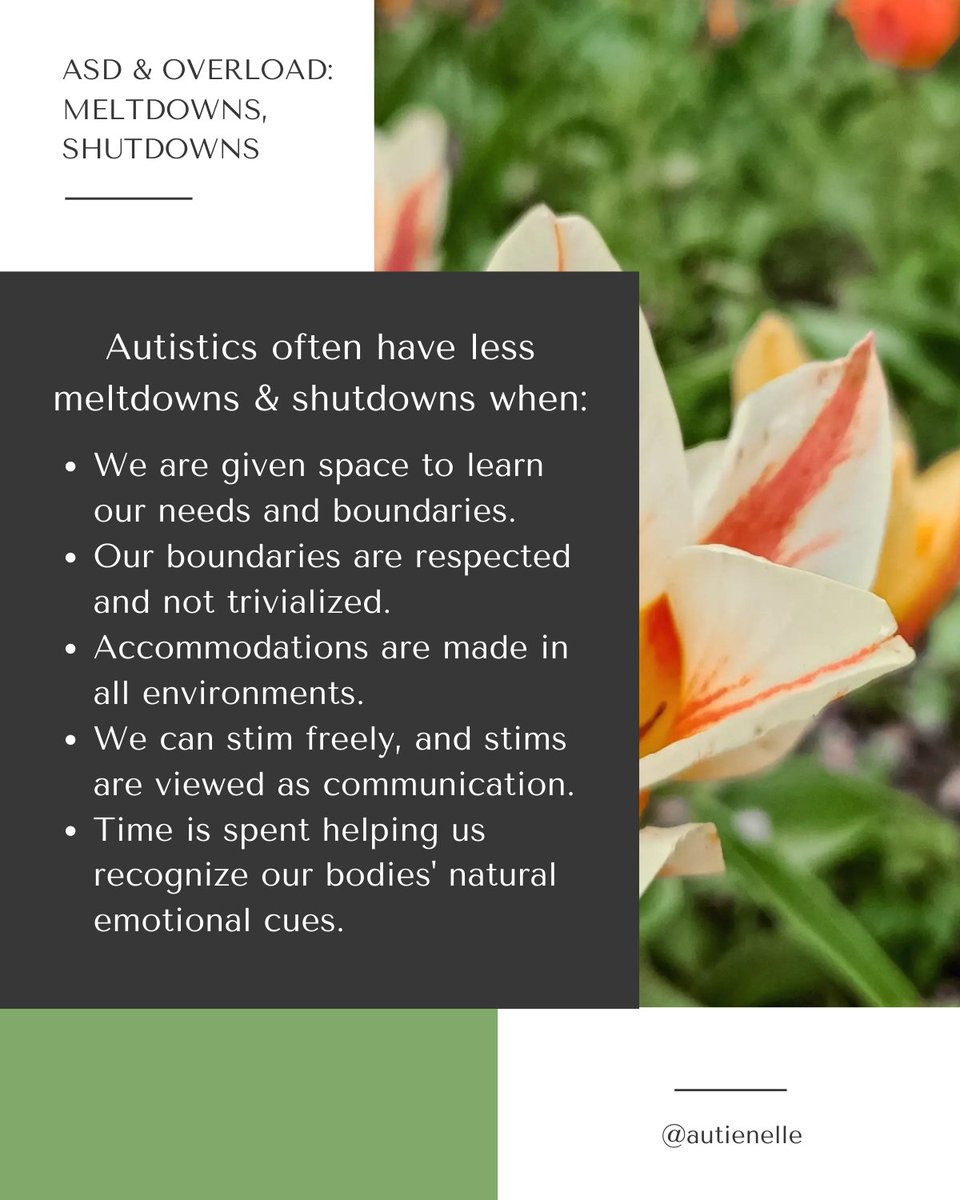
Meltdowns & shutdowns are communication. Autistic bodies are telling us & telling others that we've reached a limit. We can no longer mask our pain, force our bodies into situations that harm us, or endure the pressure of doing things that others force us to do.
Autistic brains are working overtime. Our bodies are regulating unsupportive environments. Most environments are designed with NTs in mind.
The result: Overload. Meltdowns. Shutdowns.
The result: Overload. Meltdowns. Shutdowns.
When autistic brains reach the processing limit, our bodies respond in ways that are neither good nor bad. Meltdowns & shutdowns may hurt or lead to danger, but they aren't intentional behavior meant to hurt/endanger.
Once a meltdown/shutdown begins, retaliation/punishment won't effectively help. We're in crisis & require patience, love, & understanding. We need people to help secure our safety, wait out the overload, & stand beside us as we seek out the crisis' root causes.
Instead of stopping meltdowns, autistics need proactive support. These supports can be put into place by the autistic, but will only succeed when our friends, family, & society implement large-scale supports.
More research into/public education around meltdowns is a high priority. This must be done with autistic (especially BIPOC autistic) voices at the forefront, as we are the ones who often face repercussions from law enforcement, school consequences, & life-threatening restraints.
For ideas on how to proactively support ourselves (or support an autistic loved one), here's a graphic I made for an IG post on this topic:
instagram.com/p/CSuxa7ksQa0/…
instagram.com/p/CSuxa7ksQa0/…

Sources/Resources:
Autism West Midlands "Meltdown and shutdown in people with autism"
Mona Delahooke "Beyond Behaviors"
See: Matthew Rushin
Autism West Midlands "Meltdown and shutdown in people with autism"
Mona Delahooke "Beyond Behaviors"
See: Matthew Rushin
As per @autistictic's caveat, I to clarify that melt/shutdowns aren't intentional communication. Autistics are not purposefully a melting/shutting down to prove a point or get needs met. Communication can be body-up & unintentional, i.e. art, stims, body language, crying, etc.
• • •
Missing some Tweet in this thread? You can try to
force a refresh



